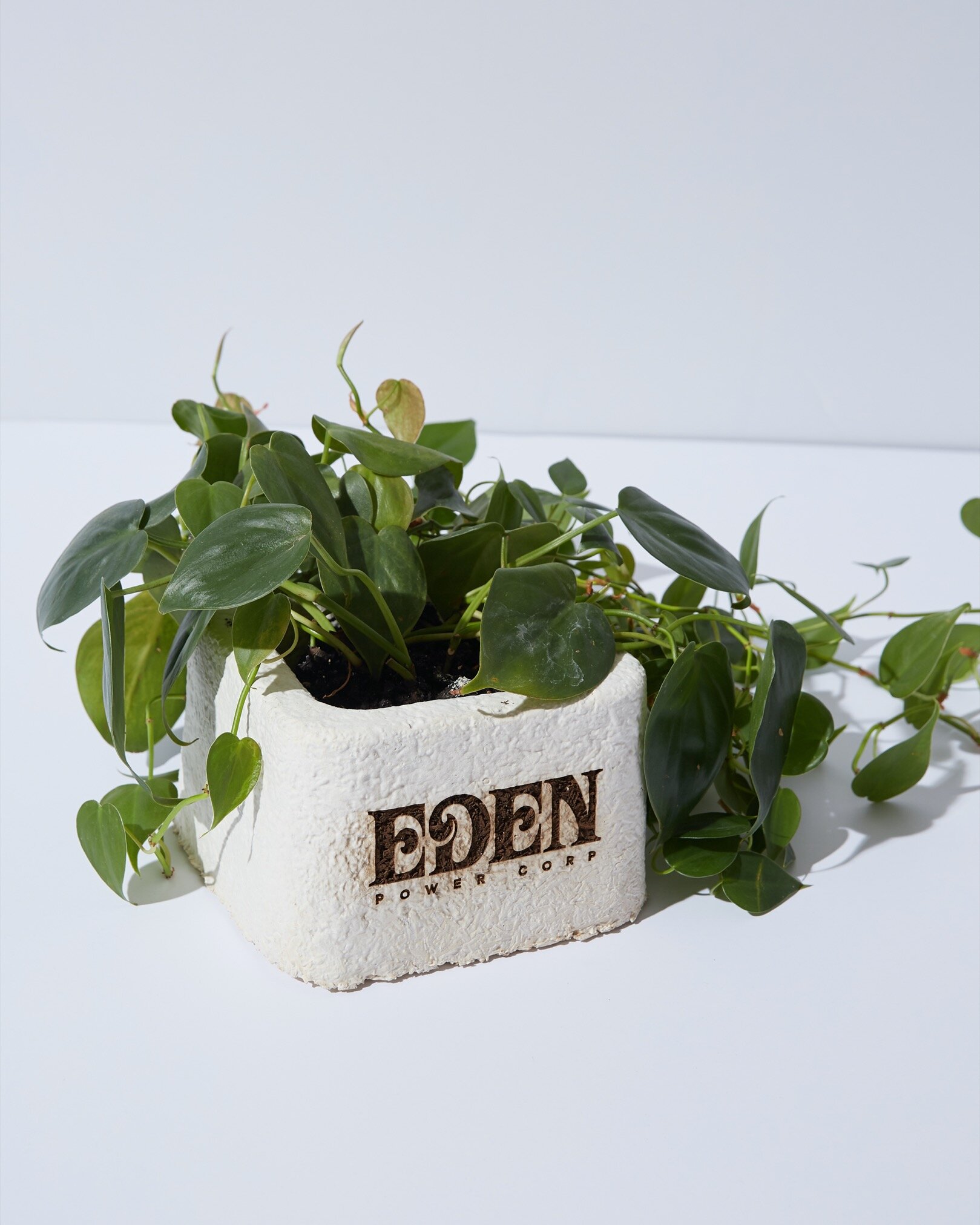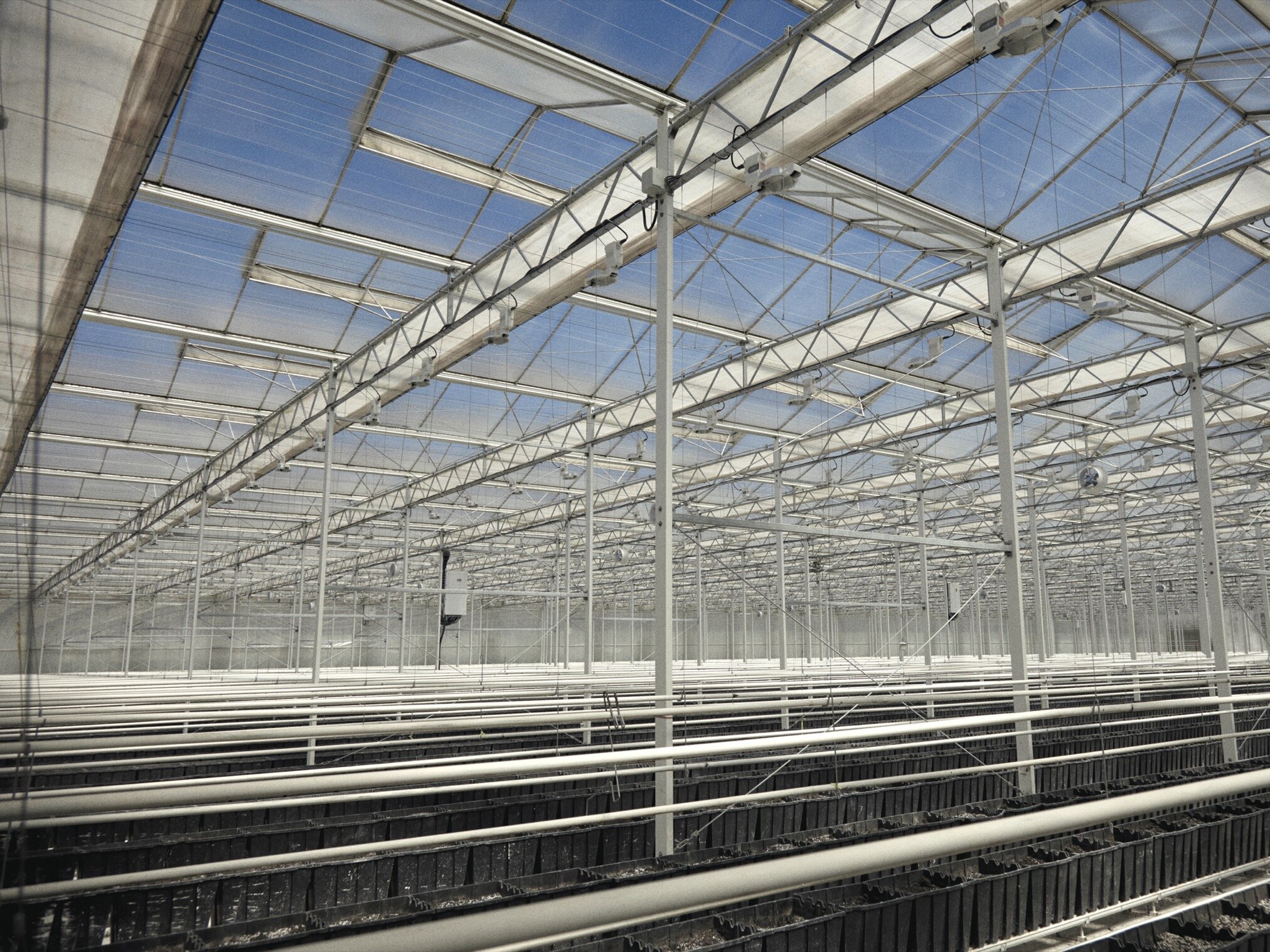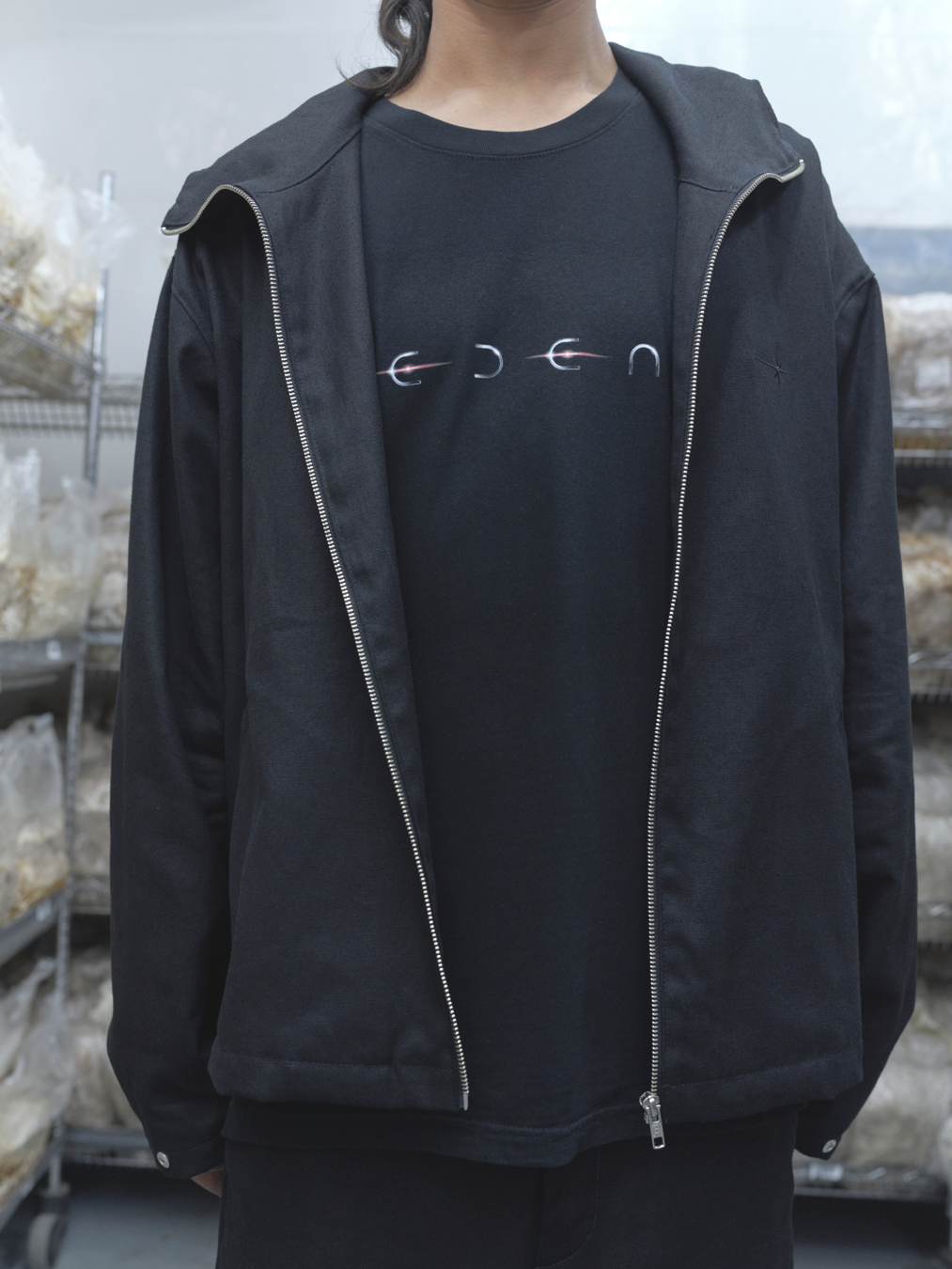Eden Power Corp are Trying to Program the Future

Within the history of literature, fiction has been used as a way to suggest alternative ways of living.
When the planet was mostly still a mystery, the idea of distant worlds where people lived differently was enticing. Islands were undiscovered, far-away beaches were unspoiled and strange cultures lurked on every periphery. The potential to ask What if? lied in masterpieces of fiction like Don Quixote, Robinson Crusoe and even allegory like Arabian Nights.
These speculative novels based on far-flung continents were used as ways of conjuring hypothetical scenarios. But as time progressed, the planet got smaller. As humanity's grip on the world tightened, the distant lands became closer and mastery of boats, trains and planes flattened landscapes. When this happened, writers had to take their speculations elsewhere. The jungles dried up, but the stars became imbued with new possibilities. Science fiction was born.
As an extension of this theme, Eden Power Corp present themselves as speculative fiction - except they aren’t using novels to make us question our place in the grand scheme of things, they’re using clothing. Their vision acknowledges clothing’s fundamental position on our skin, but they want our clothing to go one step further. They want clothing to be a philosophical tool, nudging us in the direction of ethics. Eden Power Corp wants you to question your relation to the world - your impact, your choices, and, they write to us, to “challenge notions of what’s desirable”.
When you enter Eden Power Corp’s website, you don’t feel like you’re into the domain of a clothing retailer. You feel like you’ve just stepped into a space station. You’ve completed G-Force training, spent hundreds of hours in artificial simulations, and your new role has appeared before you: you’re colonising Mars. You’re building solar panels, plotting permaculture, restoring waterways. Eden Power Corp is a Phillip K. Dick novel for your skin.
At the heart of the inaugural collection [FW19 Solar Energy Department] was the worker’s uniform. It’s functional, not because it’s a trend, but because it’s a fundamental necessity. How could you repair a broken solar panel in impractical clothing? The rest of their products followed a similar suit, with recycled cotton t-shirts, bags of woven cottons and recycled nylon and their now-signature nalgene water bottles.
Eden Power Corp was started by Isaac Larose [Creative Direction & Strategy] and Florence Provencher-Proulx [Creative Direction & Design], who, having both spent time working in fashion, decided to make a brand that allowed them the creative freedom to more closely echo their own perspectives on life. A brand by them and for them - but also, for the greater good.
Before Eden Power Corp, Larose’s name was associated with the millinery Larose Paris, which launched in 2012. Larose Paris made 5-panel hats, bucket hats, fedoras - all with touching details that elevated them above the competition, and attracted collaborations with brands like Missoni and Our Legacy, and write ups from establishments like the NY Times, the Wall Street Journal, Vogue and GQ. Larose Paris was onto something - but Larose wanted something different. Larose and his partner Provencher-Proulx want the future.
Each Eden collection is based on a new theme. SS20 Garden Agriculture Department featured new workwear suits, as well as an exploration of naturally tie-dyed items, including a range of hats that built on Larose’s background. Also new to this collection was a range of bags, both for carrying water bottles and everyday use, named after places and people from a favourite book of the couple, Dune by Frank Herbert.
Having previously used recycled plastics [nylon, polyester], Eden found it fitting to remove all plastic fibres from their productions for FW20 Ocean Graveyard Restoration. Whilst t-shirts have always been 100% recycled cotton, their sturdier shirts, bags and hats, previously a cotton and recycled-plastic blend, are now hemp and cotton blends. The duo believe this move is a microcosm of a wider global necessity to remove plastic from supply chains, in order to tackle microplastics in oceans, ecosystems and food chains.
Building on this dependency between ecosystems, supply chains and health, the duo are keen to discuss similarities between natural wine, food, and clothing [Larose previously spent time as Creative Director at Quebec City Natural Wine Bar, and for their Montreal HQ opening, they celebrated by collaborating with Pinard et Filles, a Quebec-based vineyard owned by Frédéric Simon to dye t-shirts with wine lees]. Once “you understand that pesticides are bad for you and you shouldn’t eat food full of them”, Isaac writes to Sabukaru, “the same logic applies to plants and fibres for clothing”. As well as damaging an individual, pesticides and additives in food, wine and clothing all contaminate ecosystems.
For Eden, the move of the future is acknowledging the harms embedded in production - and knowing that a better product comes from better control of the supply chain, and all it’s webs of nodes and interactions. More complex wine, juicier tomatoes, softer cotton. But above all of this, balance with the world around it. Less water intensity, minimal pesticides, no labour-exploitation. The future is harmonious and attentive. The future is, for Larose and Provencher-Proulx, Eden Power Corp.
For SS21, Eden have their vision set on Mycelium Research and Development. [Mycelium being the thread-like backbone to fungi and mushrooms. The mushroom you see poking out of the ground is actually the fruiting body. Mycelium is the behind-the-scenes work.]
Mycelium, often touted as one of the products of the future, has been used in everything from packaging to wooden panels for its ability to bond fibres together, but it is yet to see a successful launch into clothing. Eden Power Corp hope that their SS21 mushroom-suede Amadou hat, built in collaboration with Transylvanian artisans, offers a starting point.
The inspiration for the Amadou hat is the signature hat of famous mycologist, Paul Stamets, who has built up a cult-following in mushroom circles for never being seen without said hat. “He's always wearing a hat made of the same material and technique but we wanted to modernize the shape”, Provencher-Proulx says. The duo commissioned the very same artisan in Corun, Romania, who was excited to make an Amadou hat for a fashion perspective. After foraging Tinder mushrooms, a polypore that grows on the side of trees, the mushroom is boiled and stretched to the desirable shape.
Understanding of their size and presence, Eden acknowledges that the full-scale use of mycelium leather might be a few years away. Using a different technique, Eden produced planters, wine coolers and a brick - perhaps a subtle nod to the infamous Supreme brick of FW16 - from mycelium they had grown on hemp waste. In addition, they produced a beeswax candle in the shape of a mushroom to highlight the interdependency of bees and mycelium.
What’s unique to Eden Power Corp is an approach to fashion that acknowledges the representative power of production. In the same way a double-entendre carries an obvious meaning and a more subtle, implied meaning, so do Eden’s items. Their implicit goal of production is a commentary on what can be produced, and what should be. Mycelium bricks are produced to showcase “alternatives for a better future”, whereas mushroom-candles are produced as talking points, designed to better inform consumers and the public.
The strains of production itself are not lost on the couple, who admit that they spent “a really long time reflecting” on whether they - or the planet - needed to start another fashion brand. What motivated them was the power of showcasing alternatives. Inspired by the political campaign in Chile that culminated in the end of the Pinochet dictatorship, the couple saw how aggressively highlighting what was wrong [with the dictator in question, and, analogously, clothing production] actually numbed audiences. “Thinking that everyone can just stop polluting and consuming, and that we’ll all just wake up at the same time” is too-utopian thinking, Isaac says. The best response is to show an alternative option. To make it accessible. The duo conclude by hoping that their production of clothing and materials will “act as a trojan horse for [their] values”.
All of Eden Power Corp’s items are made with ecological cooperation and discussion in mind. Embroidered hemp-blend jackets and natural wine tie dye pouches for nalgenes continue to push the consumer in the direction that they believe we should all progress. Less plastic, less intensive materials. More multi-functionalism, more talking points. It’s exciting and motivating for a brand that aren’t even close to breaching their infancy. Let us all hope - for the planet’s sake - that Eden Power Corp achieve their goal of inspiring the world and catalysing change. As the tags inside their clothing conclude, “ideas are contagious and we [Eden] are here to spread them.”
Jacob is a chef and writer based in Manchester, England. He specialises in environmental consultancy relating to food and fashion.



































